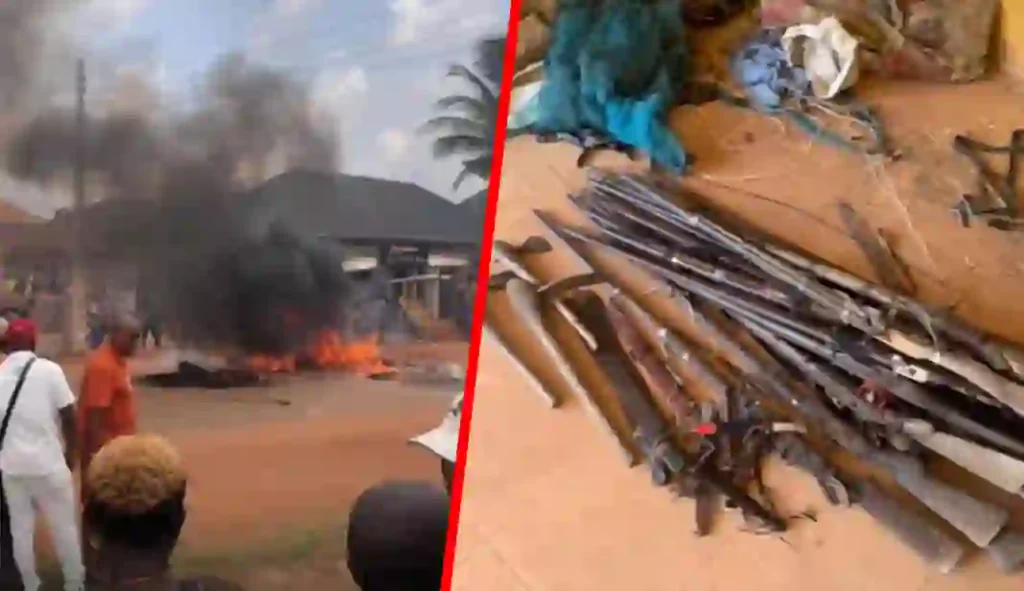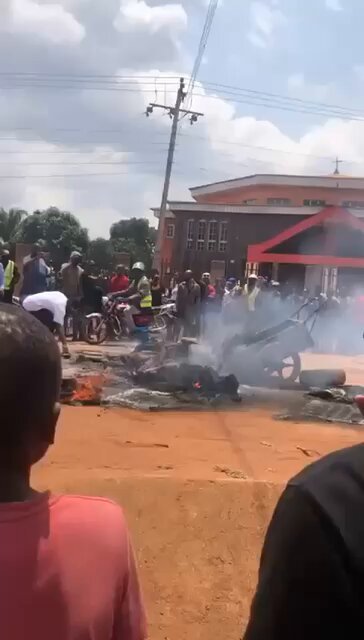In a country as vast and diverse as Nigeria, the thread that binds us should be stronger than the things that divide us. Yet, time and again, we witness how assumptions, tribal bias, and emotional reactions lead to irreversible consequences; even death. The recent killing of travelling hunters in Uromi, Edo State, painfully reminds us of how dangerous unchecked tribal sentiment and vigilante justice can be in a nation that claims to be governed by the rule of law.
According to reports, a group of hunters travelling from Port Harcourt were stopped, accused of being criminals, and brutally lynched in Uromi. Their only offence, it seems, was being in possession of guns; standard tools of their trade and not being “from around here.” Their vehicle was burnt. Their lives ended. And no fair hearing was granted.

Where were the elders of the community? Where were the security agencies? Where were the voices of reason that should have intervened before blood was spilled?
We must ask ourselves: how did we get here?
We’ve become a nation where your tribe can become your trial, and your face can be your death sentence. This is not the Nigeria our founding fathers envisioned. Patriotism isn’t just waving the flag or singing the anthem; it is in how we treat each other, especially when we’re unsure, when fear rises, or when accusations fly.
Let us be honest: the tribal tension in our land is real. But it is being fed not by truth or justice, but by ignorance, poor governance, and emotional decisions made without evidence. If those hunters had been of Esan extraction, would the outcome have been the same? We need to start answering these questions boldly.

As the Nigerian Bar Association President, Afam Osigwe (SAN), rightly said, no one, no matter the suspicion, should be denied the right to due process. Jungle justice is not only illegal, it is immoral and unpatriotic. We are not animals. We are a people of law, customs, and shared humanity. A people who chant “One Nigeria” cannot continue to kill based on “he doesn’t look like us.”

We also need to revisit how our security agencies operate and fail. How does a mob have enough time to gather, beat, burn, and kill, without police presence? What is the role of the local vigilante in all this? Who gave them the authority to act as judge, jury, and executioner?
There’s also a greater issue: our collective mindset. We are becoming a people too quick to react and too slow to think. From social media witch-hunts to real-life lynchings, we have created a dangerous culture where opinion trumps truth, and mob rule is celebrated as justice. It must stop.
What happened in Uromi is not just a tragedy, it is a wake-up call. A call to our leaders, our law enforcement, our communities, and our consciences. We must do better.

Let us teach our youth the values of critical thinking, patience, and understanding. Let us empower our security operatives with the right tools, training, and accountability mechanisms. Let us demand responsible leadership, and even more, let us hold ourselves accountable as citizens.
This is not about tribe. This is not about region. This is about humanity. Justice. Patriotism.
And until we rise above these biases and act with fairness, unity, and due process, we will remain a nation at war with itself.

May the souls of the slain hunters rest in peace. And may their unjust deaths not be in vain.
Because Nigeria must be better than this




Leave a reply